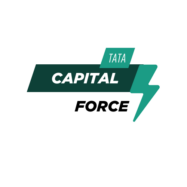Understanding and managing your taxes is not just a crucial part of operating a business; it’s a powerful tool that can help you navigate the financial landscape confidently. Whether you’re dealing with corporation tax or submitting your self-assessment tax return, understanding and controlling these processes can make a significant difference.
For this reason, we’ve created this helpful reference to all the major company taxes you need to know about while doing business in the UK. Continue reading to discover what, when, and how you must pay.
Which Taxes Must You Pay as A Business?
Several elements determine which business taxes you must pay, such as:
- The form of your company,
- the profit you generate,
- and how you compensate yourself as an owner (whether through dividends, business withdrawals, or a salary).
Remember, you won’t have to pay for each tax. Understanding the entire range of business taxes with the help of an accountant London, Ontario, is beneficial, as it could aid in the organization and management of your company.
Moreover, it could open up opportunities to utilize available reliefs, potentially reducing your tax burden and boosting your business’s financial health. Generally speaking, the primary business taxes to be mindful of are:
- Income tax and corporate tax
- The National Insurance
- VAT
- Capital gains tax, dividend tax, and business rates
- Taxes on employment
New Tax Laws in 2025
-
Employment Tax
The Employer National Insurance Contributions (NIC) rate will rise from 13.8% to 15% starting in April 2025. Additionally, £5,000 will replace the present £9,100 wage threshold for Employer NIC.
The impact of these increased tax responsibilities on small firms will be substantial. In addition to reviewing their current personnel and compensation bands, organizations must anticipate budget cuts, payroll evaluations, and investment reductions.

Employing different staffing strategies (such as outsourcing specific tasks or hiring part-time employees) may reduce taxation obligations. Businesses must also estimate the possible financial impact to forecast cost-cutting strategies and modify budgets.
-
Business Asset Disposal Relief(BADR)
The relief rate for BADR is a significant shift for firms this year. On the first £1 million of eligible gains under BADR, business owners currently pay a 10% tax; however, as of April 6, 2025, this rate will increase to 14%. This could boost the tax bill by up to £40,000 for those selling a business worth £1 million.
To combat this effect, the government has enacted anti-forestalling legislation. This implies that you might get a loan note (IOU) or other alternative payment when you sell your company. For this to be applicable, the election must be made before the 12-month mark of the Self-Assessment deadline for the year the loan note is received.
However, rather than when the loan note was received, the anti-forestalling provisions will apply the BADR rate when the section 169Q Taxation of Chargeable Gains Act 1992 (TCGA) election is made. Anti-forestalling provisions prevent people from taking advantage of a lower tax rate by making transactions before a tax increase occurs.
This implies that to take advantage of the 10% rate, people must complete their 169Q elections by the end of the tax year. If they miss this date, they may be subject to a higher rate of 14%. If you intend to sell your company within the next 12 to 18 months, consider expediting this transaction to take advantage of the present rate.
-
Tax Digitalisation (MTD) for Income Tax
Individuals earning over £50,000 must adhere to MTD for Income Tax and Self-Assessment (ITSA) by 2026. By 2027, persons with incomes over £30,000 will be exempt from this level. Taxpayers must consider MTD immediately, even if it is a phased extension and transition.
Significant improvements in record-keeping will be necessary for the shift, and taxpayers will be primarily responsible for integrating data seamlessly with minimal assistance from HM Revenue & Customs (HMRC).

To prevent last-minute compliance concerns, businesses must educate themselves on MTD and take proactive steps to modernize their software and record-keeping practices. Doing so can ensure a smooth transition and stay ahead of the game.
-
Inheritance Tax
Businesses should also prepare for the 2026 and 2027 Inheritance Tax (IHT) amendments. For instance, starting on April 6, 2026, a £1 million cap on business property relief (BPR) and agricultural property relief (APR) 100% tax relief (with relief of 50% after that) will be implemented. Beginning on April 6, 2027, pensions will also be included in IHT.
Conclusion
Avoiding the 2025 tax reforms is a daunting task. Still, with the correct information and preparation, small London companies can adapt smoothly—and even find opportunities in the transition.
From reformed corporation tax to mandatory digital VAT reporting, knowing beforehand and moving fast is key. Whether running a freelance business or managing a growing team, steps like
- updating your bookkeeping software,
- reviewing your VAT liabilities,
- and taking a personal tax accountant’s opinion
can help ensure total compliance while achieving maximum relief available. London’s lively small business population has weathered many policy reforms. With strategic thinking ahead, you can stay on top of things and keep your operations smoothly running in the coming year.



